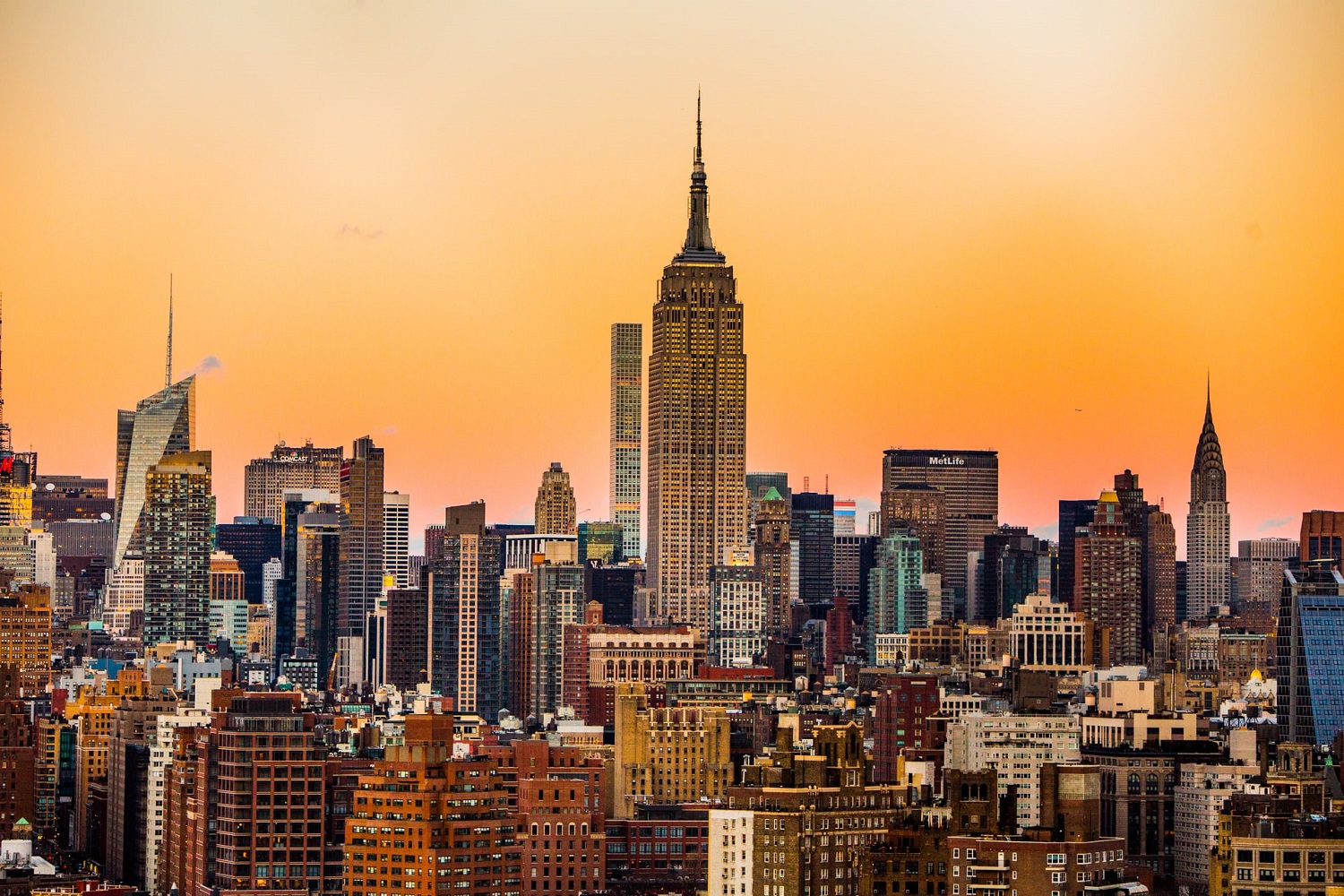In 2025, global city rankings highlight a mix of familiar favorites and rising stars in quality of life. Factors like safety, healthcare, cost of living, housing affordability, infrastructure, climate, job opportunities, culture, environmental quality, education, political stability, and expat-friendliness all play a role.
Below, we present a comprehensive list of the top 25 cities to live in 2025, based on a blended analysis of authoritative sources – from the Economist Intelligence Unit (EIU) and Mercer Quality of Living reports to Monocle’s Quality of Life Survey, Numbeo data, and InterNations’ Expat City Ranking. We’ve ensured broad global representation, with cities from Europe, North America, Asia, Oceania, the Middle East, Latin America, and Africa.
First, see how these 25 cities compare across key quality-of-life metrics:
Global Quality of Life Comparison Table
| City | Safety | Healthcare | Cost of Living | Environment |
|---|---|---|---|---|
| Vienna (Austria) | High | Very High | Moderate | Excellent (clean, green) |
| Zurich (Switzerland) | Very High | Very High | Very High (expensive) | Excellent (clean, green) |
| Copenhagen (Denmark) | Very High | High | High (expensive) | Excellent (clean, sustainable) |
| Auckland (New Zealand) | High | High | High (expensive) | Excellent (clean, coastal) |
| Melbourne (Australia) | High | High | Moderate | Good (pleasant climate) |
| Geneva (Switzerland) | Very High | Very High | Very High (expensive) | Excellent (clean, scenic) |
| Munich (Germany) | High | Very High | High (expensive) | Excellent (clean, green) |
| Vancouver (Canada) | High | High | High (expensive) | Excellent (pristine nature) |
| Sydney (Australia) | High | High | High (expensive) | Good (clean, coastal) |
| Singapore (Singapore) | Very High | Very High | High (expensive) | Good (very clean city) |
| Tokyo (Japan) | Very High | Very High | High | Moderate (urban air quality) |
| Stockholm (Sweden) | Moderate | High | High | Excellent (clean, green) |
| Toronto (Canada) | High | High | High | Good (clean, cold winters) |
| Amsterdam (Netherlands) | High | High | High | Good (clean, some congestion) |
| Lisbon (Portugal) | High | High | Moderate | Good (clean, mild climate) |
| Madrid (Spain) | Moderate | High | Moderate | Moderate (warm, some smog) |
| Dubai (UAE) | Very High | High | High | Moderate (hot, some dust) |
| Valencia (Spain) | High | High | Low (affordable) | Good (clean, coastal) |
| Kuala Lumpur (Malaysia) | Moderate | High | Low (affordable) | Moderate (humid, some haze) |
| Taipei (Taiwan) | Very High | Very High | Moderate | Moderate (urban, clean air) |
| Honolulu (USA) | High | High | High | Excellent (clean, tropical) |
| Panama City (Panama) | Moderate | Moderate | Moderate | Moderate (tropical, humid) |
| Mexico City (Mexico) | Low | Moderate | Low (affordable) | Poor (polluted) |
| Athens (Greece) | Moderate | Moderate | Moderate | Moderate (improving air) |
| Nairobi (Kenya) | Low | Low | Low (affordable) | Moderate (urban, some smog) |
| Note: “High” in Safety/Healthcare means very good; “High” in Cost means expensive (unaffordable); “Low” in Cost means inexpensive. “Environment” considers pollution and urban environmental quality (clean vs. polluted). | ||||
The Best Cities to Live in 2025
Below, we profile each of the 25 cities, explaining why they excel. Rankings (1 to 25) are our aggregated 2025 outlook, blending recent EIU Liveability Index results, Mercer Quality of Living rankings, Monocle Survey insights, and InterNations Expat City survey findings.
Vienna, Austria
Vienna tops virtually every quality-of-life ranking for 2025. The EIU has crowned Vienna the world’s most livable city for the third year running, thanks to its exceptional stability, rich culture, excellent public services, and affordable transit. It earned perfect or near-perfect scores in stability, healthcare, education, and infrastructure.
Residents enjoy a high sense of security and extensive green spaces, with Vienna’s low pollution and efficient public transport frequently praised. The city’s imperial history, vibrant arts scene, and famed coffeehouse culture add to its charm. While housing costs have risen (an ongoing housing shortage is noted), Mercer still ranks Vienna near the very top globally for quality of living. For families and retirees, Vienna offers an ideal mix of safety, stability, and cultural richness, cementing its status as the gold standard for urban liveability.
Zurich, Switzerland
Zurich is often synonymous with high quality of life. In Mercer’s 2024 city ranking, Zurich was #1 worldwide, reflecting its excellent safety, political stability, and world-class infrastructure. Nestled on a lake with the Alps nearby, Zurich offers a pristine environment and outdoor recreation alongside a powerful economy. Healthcare and education standards are world-class, and the city is extremely safe and orderly. Public transport is efficient, and residents enjoy high purchasing power.
The main trade-off is cost: Zurich has one of the highest costs of living globally (Mercer notes Swiss cities are among the most expensive). Still, for expats and professionals, high salaries and low crime make it worthwhile. Cultural life is vibrant for a city its size, with renowned museums and theaters. Overall, Zurich combines Swiss efficiency with a high comfort of living — an ideal city for those who can afford its luxurious standards.
Copenhagen, Denmark
Copenhagen continues to shine as one of the world’s best places to live. Denmark’s capital is ranked #2 globally by the EIU, reflecting top scores in infrastructure, education, and stability. It’s famed for its bike-friendly layout and green initiatives — Copenhagen aims to be the world’s first carbon-neutral capital. Safety is very high, and corruption is minimal. Residents benefit from free healthcare and education and a strong social safety net.
Copenhagen combines historic charm (cobbled streets, canals, and castles) with modern design and a thriving culinary scene. It’s particularly attractive for families and expats seeking work-life balance. While the cost of living is high (heavily taxed to fund public services), quality is likewise high — for example, tap water is as clean as bottled and public transport is reliable. Consistently, Copenhagen appears near the top of Monocle’s and Mercer’s livability surveys, thanks to its progressive urban planning and quality-of-life focus.
Auckland, New Zealand
Auckland offers an extraordinary lifestyle, blending urban amenities with natural beauty. Surrounded by harbor bays and volcanic hills, New Zealand’s largest city ranks among the world’s most livable: it tied 9th in the latest EIU Index and is a perennial Mercer favorite (previously #3 globally).
Auckland is renowned for its environment – air quality is excellent, and outdoor recreation is part of daily life. Safety and political stability are strong, and the population is diverse and welcoming. The climate is mild year-round. While Auckland’s housing has become expensive and traffic can be an issue, recent improvements in public transit and urban development are underway. Job opportunities in tech and creative industries are growing, and English being the primary language makes it easy for expats. For digital nomads and families alike, Auckland’s combination of modern infrastructure, friendly community, and proximity to nature (beaches, forests, vineyards) is hard to beat.
Melbourne, Australia
Melbourne has long been celebrated as one of the world’s most livable cities, having topped the EIU’s global livability ranking for seven years straight in the 2010s. In 2025, it remains Australia’s leader in quality of life, coming in 4th in the EIU index. Melbourne stands out for its culture and education — it’s often called Australia’s cultural capital, boasting renowned universities, a vibrant arts scene, numerous festivals, and a famous coffee and food culture.
Residents enjoy excellent healthcare and infrastructure (public transport and bike paths are extensive). The city is also very diverse and welcoming to immigrants and students. While housing costs and traffic have been growing pains, Melbourne still offers more affordable living than Sydney. Its climate is temperate (though famously changeable). For digital nomads, the city’s café scene and tech hubs are a draw; for families, plentiful parks and high-quality schools stand out. In short, Melbourne offers a well-rounded, creative, and inclusive environment that consistently ranks among the world’s best.
Geneva, Switzerland
Geneva, home to many UN agencies and international organizations, exemplifies a high quality of life on a compact scale. Mercer’s 2024 report ranks Geneva 3rd in the world for quality of living. The city scores top marks in safety, healthcare, and infrastructure. Set on Lake Geneva with a stunning Alpine backdrop, it offers an abundance of outdoor recreation and extremely clean air and water.
Geneva is multilingual and cosmopolitan, attracting diplomats and expats from around the globe — yet it maintains a relaxed pace. Cultural offerings include museums, fine dining, and events befitting its international populace. Public transport and bike networks are excellent. Like Zurich, Geneva is very expensive (from rents to restaurant prices), but salaries tend to match. Crime is exceedingly low. With its political neutrality and humanitarian legacy, Geneva also enjoys exceptional stability. For those in international careers or retirees seeking tranquility with urban conveniences, Geneva’s combination of security, beauty, and convenience is hard to surpass.
Munich, Germany
Munich is the highest-ranked German city in our list, reflecting its strong showing across multiple surveys. Monocle magazine even rated Munich as the world’s most livable city in 2024, citing its robust public investment, excellent schools, and green initiatives. The Bavarian capital offers a high standard of living: modern infrastructure, top-notch healthcare, low crime, and a strong economy with many job opportunities (autos, tech, finance).
Munich is known for its clean streets and abundant parks — the Englischer Garten is one of the world’s largest urban parks. Culturally, it’s famous for beer gardens and festivals (Oktoberfest) but also for opera, museums, and history. The city’s public transit and cycling paths make getting around easy, and its location near lakes and the Alps is ideal for weekend getaways.
The main drawback is cost — Munich has some of Germany’s highest housing costs, and expats sometimes find it hard to find affordable accommodation. Additionally, making local friends can be a challenge, as noted by expat surveys. Still, Munich’s stability, cleanliness, and leisure options make it immensely attractive for families and professionals alike.
Vancouver, Canada
Vancouver has long been famed for its breathtaking natural setting and high quality of life. Framed by mountains and the Pacific, it offers unparalleled access to nature — from skiing and hiking to beaches — alongside the amenities of a diverse, cosmopolitan city. Vancouver is often ranked in the top 10 of EIU and Mercer indices (formerly a fixture at #5 or #3 globally).
In 2024 EIU index, it tied for 7th place. It scores particularly well in healthcare, environment, and infrastructure. The city is safe and very multicultural, with a thriving food and arts scene. However, Vancouver faces challenges in 2025 that temper its ranking: housing affordability is among the worst in the world — Mercer notes it as the least affordable city for housing globally — and expat surveys have lately ranked Vancouver surprisingly low (53rd, dead last in one 2024 expat city ranking) due to high costs and difficulty making local friends.
For those who can afford it or tech workers who enjoy high salaries, Vancouver remains an incredible place to live, offering a rare mix of urban convenience and pristine wilderness. The city government’s efforts to improve housing and transit may ease pressures in coming years. Vancouver is still a top choice for environment-loving digital nomads and families seeking clean, safe living — but the cost of living means it’s best suited to those with strong financial footing.
Sydney, Australia
Sydney combines a spectacular coastal lifestyle with the dynamism of a global city. It consistently ranks in the top tier of livability indexes – tied 7th in the 2024 EIU ranking – and offers some of the best urban climate and outdoor recreation opportunities anywhere. With its iconic Sydney Harbour and beaches like Bondi, the city is a paradise for outdoor enthusiasts. Sydney also boasts excellent healthcare and education systems, and it’s very safe.
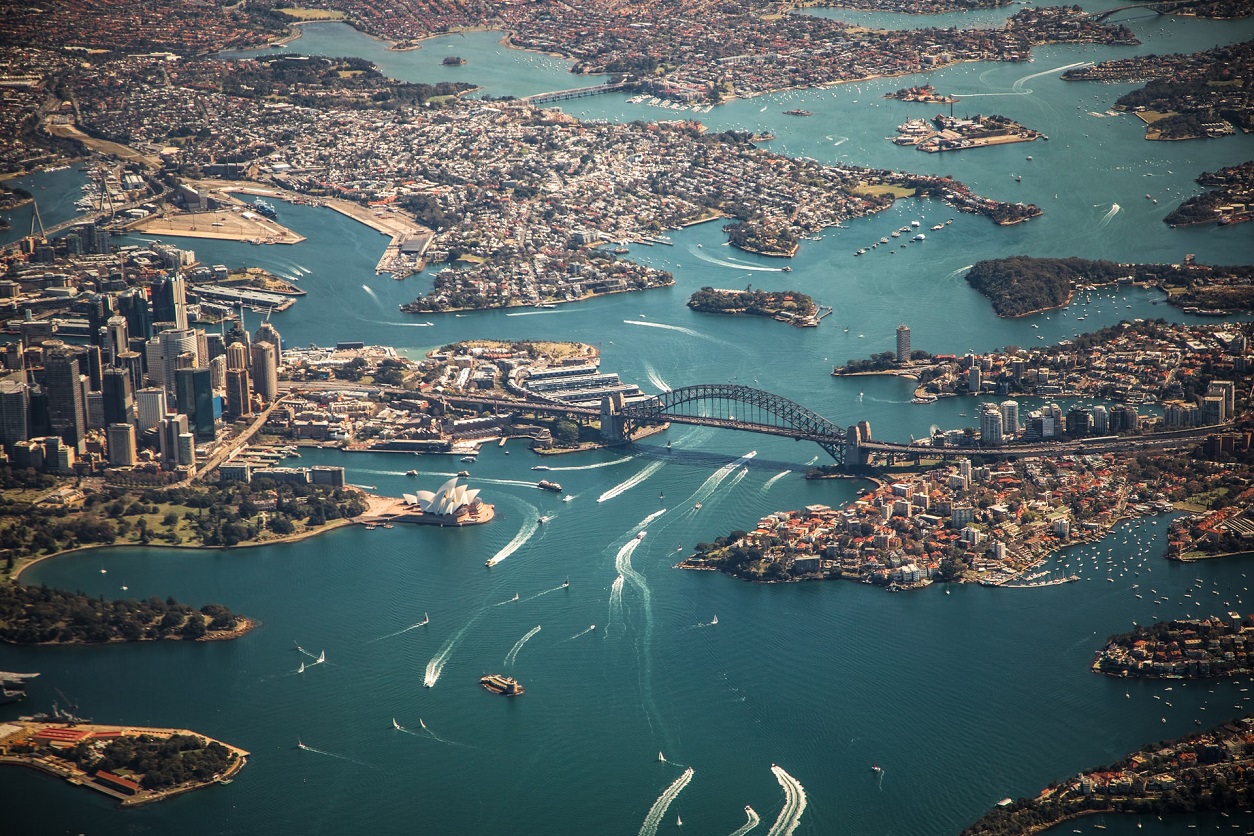
Culturally, it’s a melting pot with a lively dining scene, festivals, and arts (including the famous Opera House). Infrastructure is generally strong (the public ferry network doubles as a scenic joyride), though traffic can be heavy in this sprawling metropolis. Like other Australian cities, housing has become pricey, and everyday costs are high.
Mercer puts Sydney in the upper echelons for quality of living (it ranked #12 globally), reflecting how well-rounded the city’s offerings are. Sydney particularly appeals to expats and digital nomads who want a relaxed, beachy vibe without sacrificing career opportunities – it’s a financial and tech hub for the Asia-Pacific region. If you can handle the high costs, Sydney’s blend of sunshine, safety, and social life is hard to match.
Singapore, Singapore
Singapore is often cited as the cleanest and safest city in the world, and it remains a top choice in Asia for expats and locals alike. This city-state offers a unique combination of political stability, extremely low crime, and high-quality healthcare and education. Singapore frequently leads Asia in livability – it ranked 1st in Asia and 11th globally in one recent quality-of-life index (and is usually not far below the top 10 in EIU rankings). It’s also renowned for its stellar infrastructure: public transit is air-conditioned and punctual, roads are immaculate, and Changi Airport is world-class.
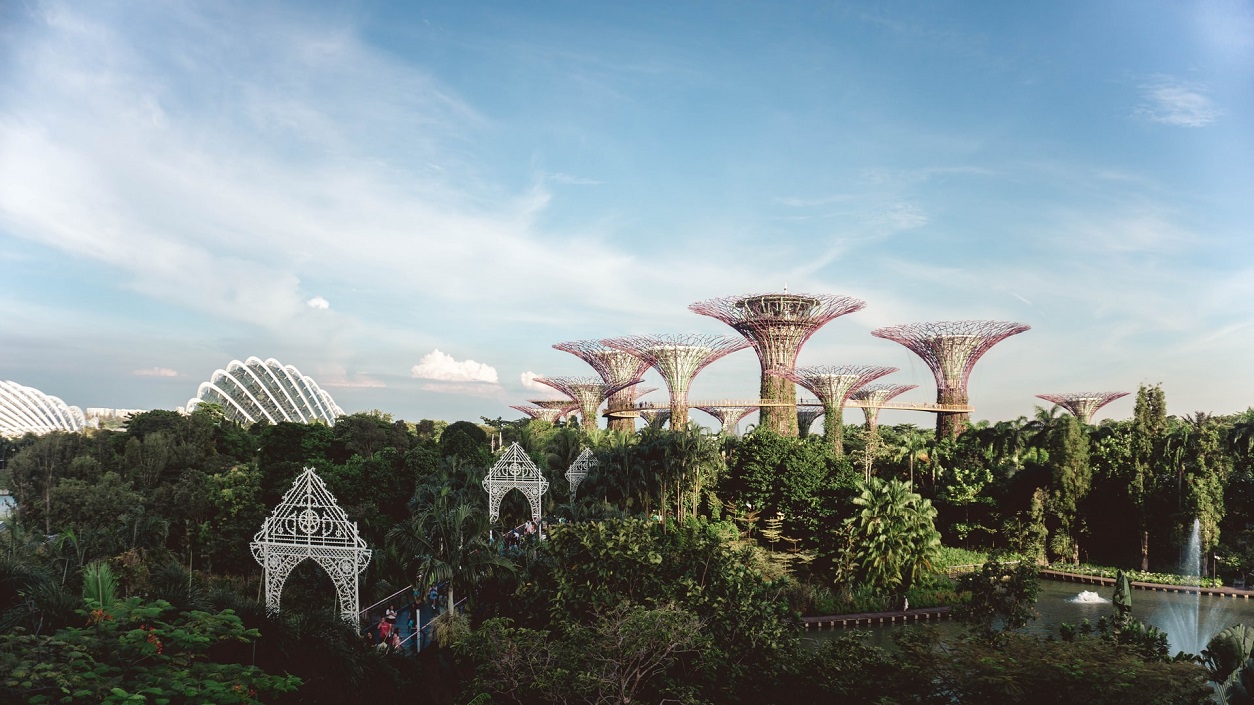
Singapore’s population enjoys a high per-capita income, and many multinational companies have Asian headquarters here (meaning abundant job opportunities in finance, biotech, IT, etc.). Cultural life is a rich blend of Malay, Chinese, Indian, and Western influences, reflected in the city’s famous hawker food centers and festivals. For families, Singapore offers political stability and top international schools.
The downsides are the high cost of living (housing and cars are very expensive) and a humid tropical climate that some may find challenging. In InterNations’ 2024 survey, Singapore’s expat ranking slipped to mid-pack largely due to cost concerns. Still, with its virtually zero violent crime and ultra-efficient services, Singapore remains arguably the most liveable city in Asia, especially for those prioritizing safety and modern comfort.
Tokyo, Japan
Despite being one of the world’s largest cities (37 million in the metro area), Tokyo offers an astonishingly high quality of life. It is extremely safe – Tokyo consistently ranks among the safest big cities globally – and is impeccably clean and well-organized. Public transportation in Tokyo is famously efficient, extensive, and on time, making car-free living easy. The city also boasts some of the world’s best healthcare facilities and a very high life expectancy.
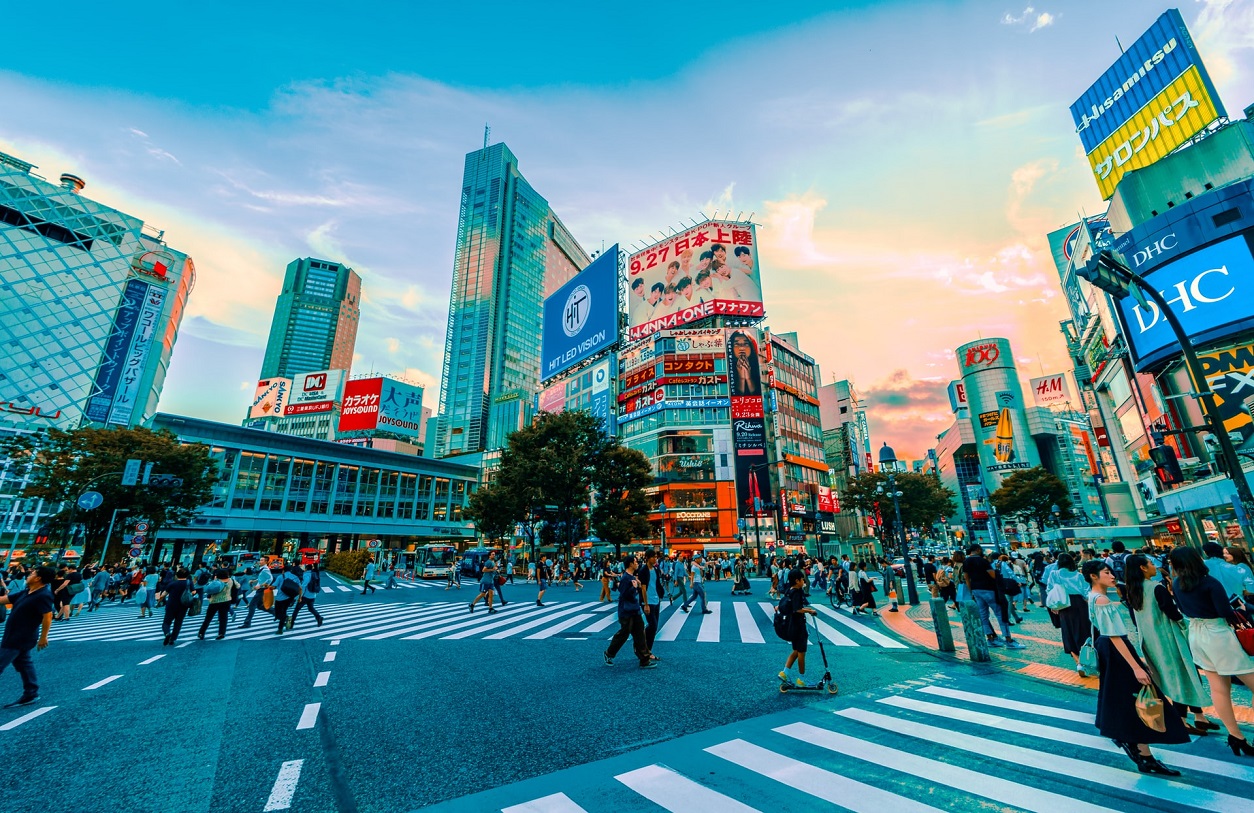
Culturally, Tokyo is a treasure trove: from ancient temples and parks to cutting-edge technology, fashion, and Michelin-starred restaurants, there is something for everyone. Monocle’s 2024 survey ranked Tokyo the 6th most livable city worldwide, highlighting its focus on community and sustainable development. Residents enjoy a mix of ultra-modern amenities (fast internet, endless entertainment) and respectful social norms that keep the city comfortable.
Downsides include the high cost of living (though still often cheaper than New York or London) and smaller living spaces. The language barrier can also be a challenge for expats, though English signage and services have improved. Overall, Tokyo offers a unique balance of tradition and modernity, and its ultra-safe, clean environment makes it a standout among world capitals.
Stockholm, Sweden
Stockholm exemplifies the Scandinavian model of livability: it’s green, safe, and well-provisioned with public services. The Swedish capital often scores high in quality-of-life metrics thanks to low pollution, extensive parks and waterfront areas, and strong social support systems. In Monocle’s 2024 ranking, Stockholm placed 9th globally, reflecting its ambitious climate policies and innovative urban development.
Residents benefit from free education and universal healthcare, and the city is known for its family-friendly policies (generous parental leave, subsidized childcare). Stockholm’s public transit (buses, metro, ferries) is highly efficient, making it easy to live without a car. Culturally, the city is vibrant yet relaxed — from medieval Gamla Stan streets to hip cafes and a world-class music scene (birthplace of many pop hits).
Crime rates are low by international standards, though slightly higher than smaller Nordic towns (safety is still “high” overall). Winters are dark and cold, but the trade-off is wonderful summers with late sunsets. The cost of living is high (especially dining and alcohol, due to taxes), but salaries are also strong. For those who value sustainability, equality, and outdoor access, Stockholm is one of the best places in the world.
Toronto, Canada
Toronto, Canada’s largest city, is often lauded as one of the most multicultural and safest big cities in the world. It offers a high quality of life with its clean streets, excellent healthcare system, and vast employment opportunities in finance, tech, media, and more. While Toronto didn’t make the very top of recent global lists, it still ranked in the upper tier (Mercer placed it 13th globally in 2024).
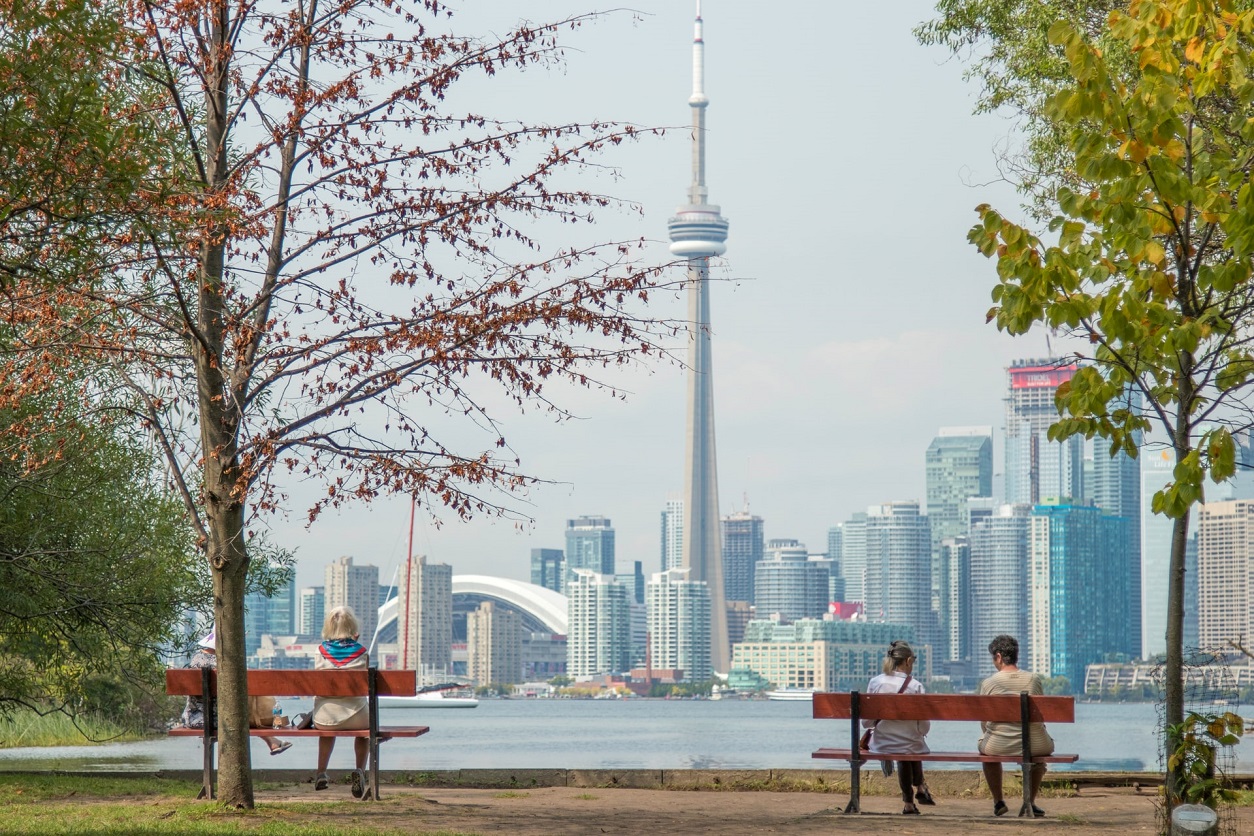
The city’s strengths include its diversity- over half of residents were born outside Canada, creating a rich tapestry of cultures and cuisines- and a generally safe environment with low violent crime. Toronto has numerous parks and is situated on Lake Ontario, giving waterfront recreation options. Education and healthcare are world-class (the city has several top universities and research hospitals). Public transit is decent and expanding (though traffic congestion is a known issue).
Cost of living is a factor: Housing is expensive, and expat surveys have flagged affordability concerns, with Toronto ranking 51st (third from last) in the 2024 Expat City Ranking. Those who secure a good income, however, will find Toronto rewarding- it’s family-friendly, has a vibrant arts and sports scene, and functions as a gateway to the beautiful nature of Ontario. For careers and culture in North America, Toronto remains a top choice.
Amsterdam, Netherlands
Amsterdam offers an exceptional quality of life, especially for those who prefer to get around by bike. The Dutch capital is famed for its cycling infrastructure, picturesque canals, and progressive social policies. Mercer’s rankings regularly place Amsterdam in the global top 10 (it was 6th in 2024), reflecting its strong scores in safety, health, and leisure. The city combines historical charm- 17th-century architecture and world-class museums (Rijksmuseum, Van Gogh)- with a very modern, tech-friendly economy and excellent English proficiency.
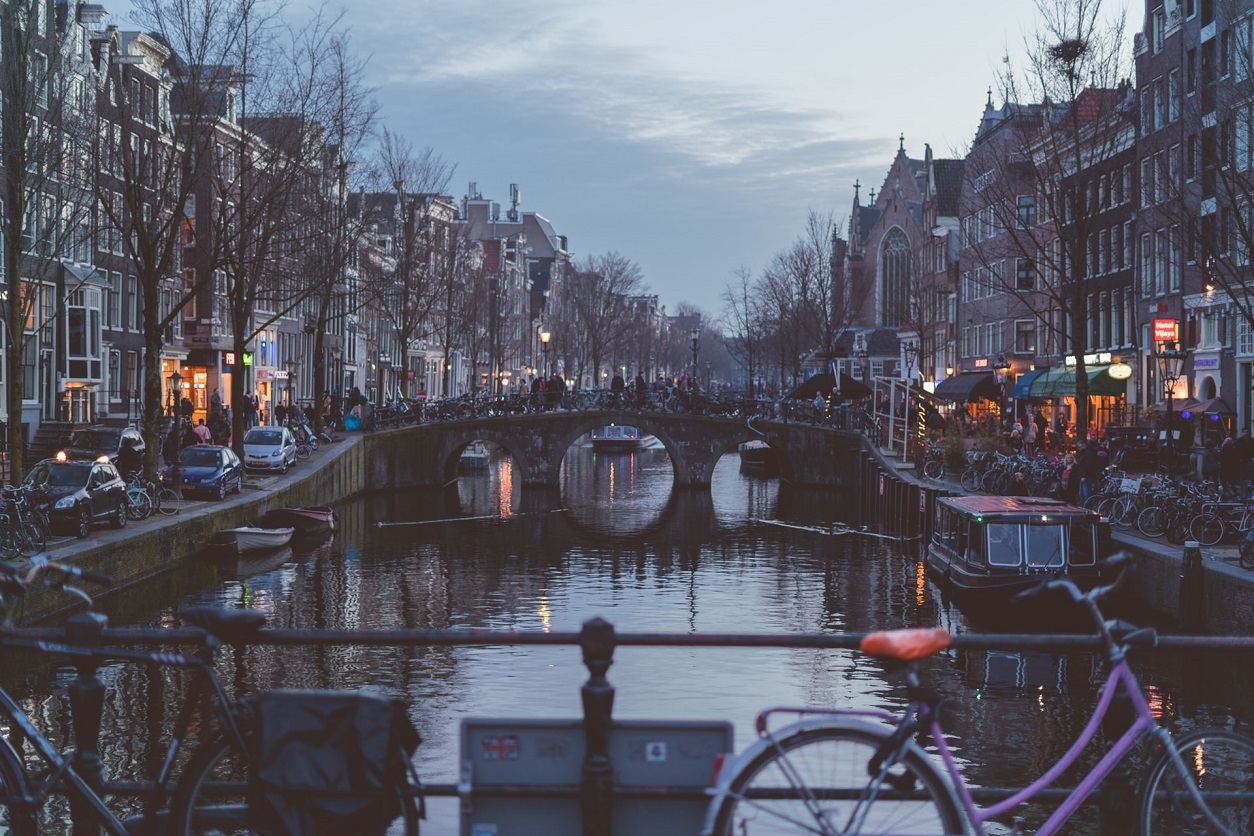
Crime rates are low, and healthcare is high quality. A notable factor is Amsterdam’s compact size: most of the city is easily accessible, which fosters a strong sense of community and work-life balance (it’s common to see parents biking with children to school).
The environment is clean, and the city has robust sustainability initiatives. On the downside, housing in Amsterdam is quite expensive and often limited in space; finding an apartment can be competitive. Also, the city’s popularity means heavy tourist crowds year-round, which some locals find taxing. Nevertheless, for expats and families, Amsterdam’s blend of culture, safety, and ease of living — not to mention the joy of car-free commuting — makes it one of Europe’s most appealing cities.
Lisbon, Portugal
Lisbon has rapidly risen in global liveability perceptions, becoming a favorite for expats, digital nomads, and retirees seeking a relaxed yet culturally rich environment. In Monocle’s 2024 Quality of Life Survey, Lisbon was ranked 8th globally, reflecting its strong focus on housing and green spaces. Situated on the Atlantic coast, Lisbon offers a warm Mediterranean climate with plenty of sunshine. The cost of living is relatively low compared to other Western European capitals- housing, while increasing in price due to demand, is still more affordable than in cities like Paris or London.
Safety in Lisbon is generally high (violent crime is rare). The city’s historic neighborhoods, tiled facades, and famous tram lines give it a charming character, while a growing tech/startup scene adds modern vibrancy. Infrastructure has improved, with a decent metro system and new investment in public transport and bike lanes. Healthcare in Portugal is solid, and private clinics in Lisbon are attracting medical tourism as well.
For expats, Portugal’s Golden Visa program and welcoming community (many locals speak English) have been big draws. Lisbon does face some challenges: wages for locals are lower than EU averages, and the steep hills can test your legs! But with its combination of climate, culture, affordability, and safety, Lisbon is firmly established as one of 2025’s best places to live.
Madrid, Spain
Spain’s capital, Madrid, offers a high quality of life marked by a rich cultural heritage and a lively social scene. In 2024, Spain emerged as an expat haven, with Madrid ranked the 7th best city for expats. Madrid combines the benefits of a large city — excellent museums (Prado, Reina Sofía), world-class restaurants, universities, and healthcare — with a relatively affordable cost of living (especially compared to other major capitals).
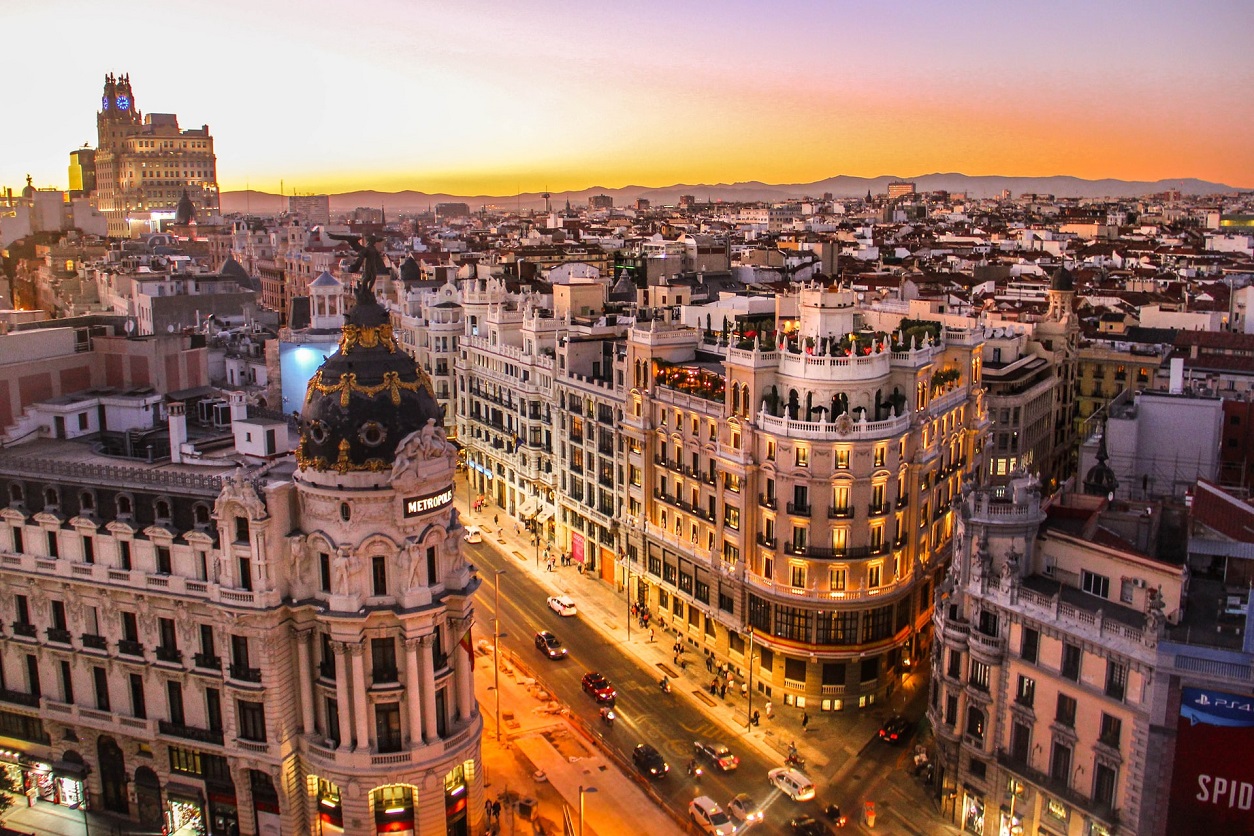
Safety is generally good; Madrid feels safe to walk at night in most areas, with crime mostly limited to petty theft. The city has significantly improved infrastructure- its public transit (metro, buses, trains) is among Europe’s best and cheapest. Madrileños enjoy many parks (the expansive Retiro Park is a green oasis) and a pleasant climate with hot summers and mild winters. A standout feature is Madrid’s social and nightlife culture: The city is famous for late-night dining and vibrant street life, which helps expats make friends and settle in.
Unemployment was a concern in past years, but job prospects are improving with growth in sectors like tech and remote work opportunities. While Madrid isn’t coastal like Barcelona or Valencia, its central location allows travel throughout Spain. For those seeking a dynamic, culturally rich yet reasonably affordable European city, Madrid is an excellent choice in 2025.
Dubai, United Arab Emirates
Dubai has rapidly transformed into one of the most expat-friendly cities in the world. In the 2024 Expat City Ranking, Dubai was #9 globally, reflecting its strengths in “expat essentials” like administration, housing, and digital infrastructure. Dubai offers a very high standard of living: crime is extremely low (it’s one of the safest cities anywhere), and modern healthcare and education facilities are widely available.
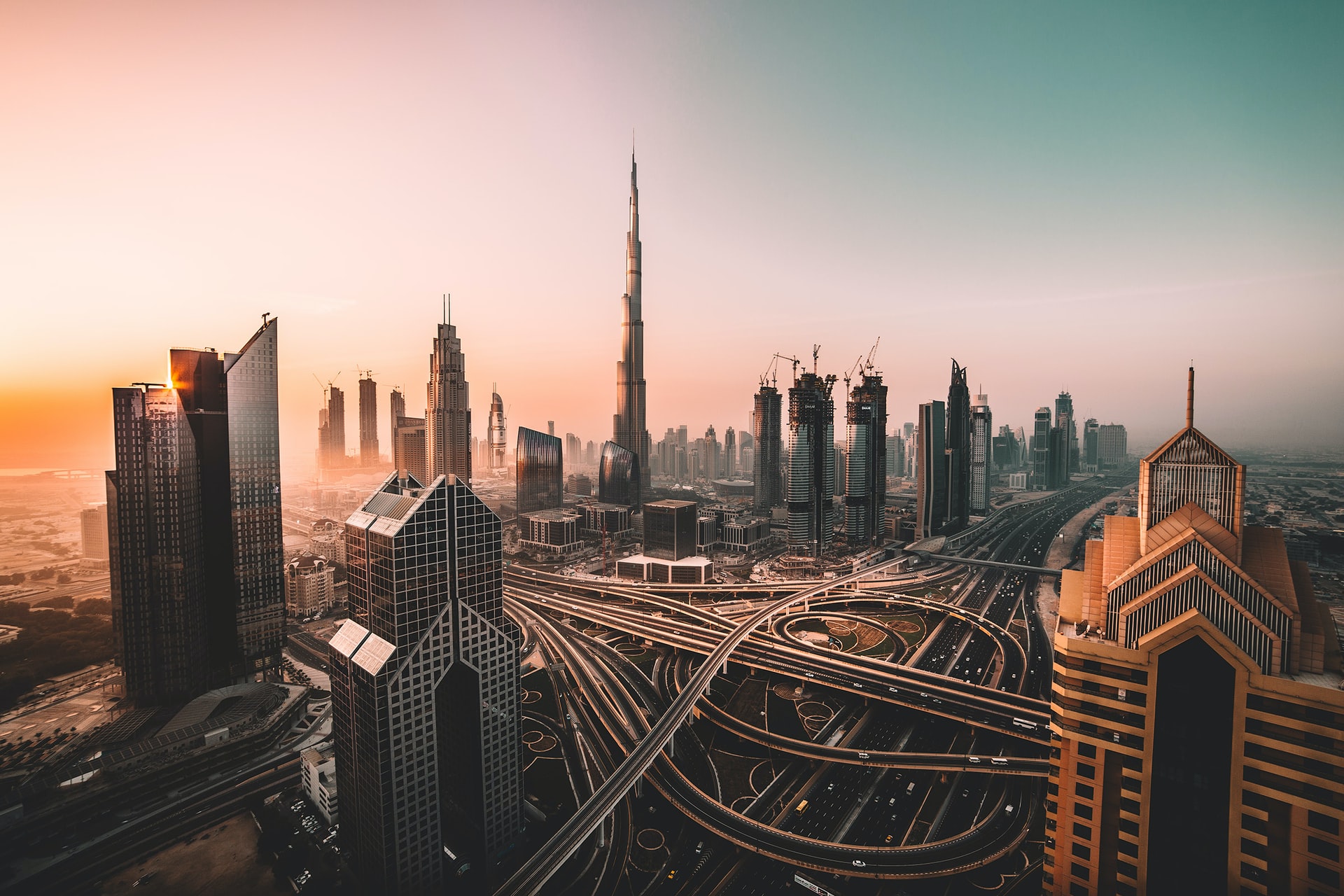
The city is synonymous with cutting-edge infrastructure- from the efficient driverless Metro to world-class roads and airports. Culturally, Dubai is very international; over 80% of the population is foreign-born, so English is the lingua franca, and new arrivals find communities from all over the globe. There is no income tax, which is a financial perk, and many job opportunities in finance, construction, hospitality, and emerging tech fields.
Leisure options are plentiful, from luxury malls and restaurants to beaches and desert adventures. Challenges include the climate (extremely hot summers) and a car-centric layout (though walkability is improving in some districts). Additionally, while a local art and music scene is growing, Dubai’s culture leans heavily toward consumerism and can feel mall-centric. Still, for expats — whether young professionals or retirees- Dubai’s safety, amenities, and tax-free income are a strong draw. The city’s recent improvement in global liveability rankings shows its commitment to becoming more livable beyond just being business-friendly.
Valencia, Spain
Valencia has been catapulted into the spotlight as one of the best places to live, especially for expats. It was ranked the #1 city in the world for expats in 2024 by InterNations, thanks to its superb quality of life and affordability. Located on Spain’s Mediterranean coast, Valencia enjoys a warm climate, miles of beaches, and a relaxed pace of life. Expats and locals alike praise the city’s low cost of living — housing is affordable (nearly 70% of expats find local housing affordable), public transportation is cheap and efficient, and delicious local food (think paella) won’t break the bank. Safety is high; Valencia is generally very safe and clean.
The city also offers rich culture and history — a beautiful old town, the futuristic City of Arts and Sciences, and lively festivals like Las Fallas. Healthcare in Spain is excellent and accessible. While job opportunities for foreigners might be more limited than in bigger cities, remote workers and retirees are thriving here.
Valencia’s expat community is growing, but the city never feels overrun by tourism like Barcelona. It strikes an appealing balance: big enough to have all the amenities, but smaller and more relaxed than Madrid or Barcelona. With its combination of sunshine, seaside leisure, and low costs, Valencia is deservedly now ranked among the world’s best cities to call home.
Kuala Lumpur, Malaysia
Kuala Lumpur (KL) is often lauded as one of the most livable cities in Asia for expats, particularly due to its affordability and convenience. In the 2024 Expat City Ranking, KL scored 12th worldwide, with expats loving its low cost of living and easygoing lifestyle. As the capital of Malaysia, Kuala Lumpur offers a mix of the modern and the traditional: gleaming skyscrapers like the Petronas Towers alongside historic temples and street markets.
English is widely spoken, making integration smoother. One of KL’s biggest draws is the cost factor — accommodation, food, and transportation are inexpensive relative to Western cities (you can dine on world-class street food for a few dollars). Yet, infrastructure is solid: there are modern shopping malls, reliable internet, and growing public transit networks (trains and MRT).
Healthcare is high quality and much more affordable than in the West, attracting many medical tourists. The climate is tropical, meaning it’s warm year-round (with frequent rain); some expats love it, while others find the humidity challenging. Safety in KL is generally good, with crime rates moderate for a big city (petty theft can happen, but violent crime is uncommon). Culturally, the city is diverse (Malay, Chinese, Indian communities), which means lots of festivals and amazing culinary variety.
For digital nomads, Kuala Lumpur has a number of co-working spaces and a vibrant social scene. Overall, KL offers big-city conveniences at a fraction of the price of most global capitals, which greatly boosts its livability in 2025.
Taipei, Taiwan
Taipei is sometimes overlooked in global city rankings, but those in the know recognize it as one of Asia’s most livable urban gems. Nestled in a basin surrounded by mountains, Taiwan’s capital is extremely safe (crime is very low) and offers excellent healthcare — Taiwan’s healthcare system is often ranked among the world’s best in efficiency and quality. Expats frequently praise the convenience of living in Taipei: the public transport (metro and bus) is clean, cheap, and efficient; the city is very modern with widespread high-speed internet and cashless payment systems; and people are generally friendly and helpful to foreigners. In the 2024 Expat Insider survey, Taipei was ranked 24th globally, with high marks in the Quality of Life index.
One highlight is food — Taipei is a foodie paradise, from night market street food to diverse international cuisine. The cost of living is moderate: cheaper than Hong Kong, Singapore or Tokyo, though pricier than some Southeast Asian cities. Housing is the one cost to watch, as owning property is expensive; however, rentals can be found to suit various budgets. Taipei’s climate is subtropical, meaning hot summers with a monsoon season and mild winters.
The city is also known for its tech industry and has a strong startup scene. For digital nomads, the combination of modern infrastructure and Taiwan’s open internet (in contrast to some restrictions in mainland China) is a big plus. With its mix of safety, modern comfort, and rich Chinese-Taiwanese culture, Taipei offers an exceptional quality of life in 2025.
Honolulu, USA
Honolulu stands out as the top city in the United States for quality of life, offering a unique blend of American conveniences and Pacific Island tranquility. In the EIU’s global livability index, Honolulu ranks #23 worldwide and #1 in the U.S. — no other American city made the top 25. Residents of Hawaii’s capital enjoy a warm tropical climate year-round, with beautiful beaches at their doorstep and lush mountains in the backdrop.
The lifestyle is famously relaxed and oriented around outdoor activities: surfing, hiking, snorkeling, and simply enjoying the island’s natural beauty. Honolulu is also quite safe, with a strong sense of community. Healthcare facilities in Honolulu are the best in the Pacific region, and the population enjoys one of the longest life expectancies in the U.S. Culturally, Honolulu is diverse (a mix of Native Hawaiian, Asian, and North American influences) and has great food, from food trucks to high-end restaurants. For families, there are good schools and a focus on family-friendly events. The downsides include a high cost of living — housing and groceries are expensive on the islands — and geographical isolation (it’s a long flight to the mainland for any major trips).
Job opportunities can also be limited outside of tourism, military, and healthcare. However, for many, the trade-offs are worth it. Honolulu provides an idyllic setting with modern amenities, making it not just a dream vacation spot but also one of the best places to live for those who prioritize climate and lifestyle.
Panama City, Panama
Panama City has emerged as a top Latin American city for expats and retirees, combining a strategic location with modern infrastructure. In the Expat City Ranking 2024, Panama City was #4 globally — an impressive showing that highlights its expat-friendly nature. The city’s strongest points include its affordability and ease of settling in. Panama uses the US dollar and has a stable economy, largely due to the Panama Canal and banking sector. This stability, along with a warm tropical climate, has attracted many North American and European expats in recent years.
Panama City’s skyline is filled with modern high-rises, and it offers amenities like large malls, international restaurants, and quality private healthcare (at lower costs than in the U.S.). Safety is relatively good by regional standards — while petty crime exists, Panama is generally safer than many other Central/South American capitals. The city also boasts a UNESCO-listed historic quarter (Casco Viejo) and quick access to beaches and rainforest escapes. English is reasonably widely spoken, especially in business circles, making daily life easier for expats.
The internet and digital infrastructure are solid, which is a boon for remote workers. On the flip side, the city’s traffic can be congested, and the public transit system is still developing (though a metro line exists). The tropical weather means it’s hot and humid, with a pronounced rainy season. Overall, Panama City offers huge value for money, political stability, and a growing cosmopolitan vibe — a top choice in the Americas for 2025.
Mexico City, Mexico
Mexico City (CDMX) is a megametropolis that has made strides in livability, especially for those who value culture, food, and social life. It might surprise some to find Mexico City ranked 5th in the world in the 2024 Expat City Ranking. Expats rave about its dynamic cultural scene, friendly locals, and low cost of living. Indeed, CDMX offers an incredible array of museums (more than almost any city in the world), historic sites, parks like Chapultepec (one of the largest city parks globally), and of course, a world-renowned culinary scene that ranges from street tacos to high-end dining.
The city has improved public transport with an expanding metro and eco-bicis (bike share), and certain neighborhoods like Polanco, Condesa, and Roma are very walkable and green. Mexico City also scores high on ease of settling — the social atmosphere is warm and it’s relatively easy to make friends. The major drawbacks is safety and pollution. Crime can be an issue (petty crime is common and some areas have serious crime problems), so one has to be street-smart and choose residential areas wisely. However, many expats report feeling safe in the well-to-do neighborhoods where they reside, and the city’s personal happiness scores were very high.
Air pollution is a challenge, though it has improved compared to past decades. Traffic congestion is notorious as well. Still, for those willing to navigate a big city, Mexico City provides an extremely rich lifestyle on a budget — rent, food, and entertainment are very affordable. With remote work more common now, some expats live in CDMX while working for employers abroad, taking advantage of the city’s low costs and high fun factor. Mexico City truly delivers on culture and community, making it a standout in Latin America in 2025.
Athens, Greece
Athens has undergone a renaissance in recent years. After a difficult decade of economic crisis, the Greek capital has bounced back to attract expats, remote workers, and entrepreneurs with its combination of rich history, pleasant climate, and improving infrastructure. In Monocle’s 2024 index, Athens made the top 20 (#20), and expat surveys also show Athens climbing the ranks (15th in 2024). What makes Athens special is its cultural heritage — living amidst ancient ruins like the Acropolis — blended with a modern café scene, vibrant nightlife, and strong community spirit.
The cost of living in Athens is moderate: cheaper than most Western European capitals, though not as dirt-cheap as it once was. This affordability extends to rent, dining out, and local produce (which is excellent, by the way). Safety in Athens is generally decent; there are occasional protests or petty crimes, but violent crime is low. The city’s Mediterranean climate provides hot, dry summers and mild winters, enabling an outdoor lifestyle much of the year. In terms of infrastructure, Athens made significant improvements for the 2004 Olympics — there’s a good metro system and a modern airport. However, traffic and air pollution can still be issues on busy days.
For digital nomads and entrepreneurs, Athens has been building up co-working spaces and startup incubators, aided by the fact that Greece offers visas to attract remote workers. And for retirees, the relaxed pace of life and relatively affordable private healthcare are draws. Overall, Athens in 2025 is a city where you can enjoy world-class historical sites, sunny weather, and a laid-back lifestyle — all on a reasonable budget.
Nairobi, Kenya
Nairobi might not feature on traditional “most livable city” lists, but it deserves attention as an emerging city offering a high quality of life for a certain adventurous demographic. Nairobi clinched the 25th spot in the 2024 Global Expat Rankings, indicating growing expat satisfaction. Kenya’s capital is a regional economic powerhouse often called the “Silicon Savannah” for its thriving tech scene (e.g., mobile payments were pioneered here).
For expats, Nairobi offers a pleasant climate (mild year-round spring-like weather), English as an official language, and an expansive community of NGOs, businesses, and startups. The city has a number of international schools and modern shopping centers, and areas like Westlands, Karen, and Gigiri provide relatively upscale, green environments to live — some expats live in gated communities or compounds with gardens.
Uniquely, Nairobi is the only major city to border a national park teeming with wildlife; it’s not uncommon to spend weekends on safari or relaxing in the green highlands just outside the city. Challenges are also part of the picture: infrastructure is a work in progress (traffic jams are common, though new expressways and bypasses are helping), and safety can be a concern — petty theft and some violent crime mean security measures (guards, alarms) are a part of life for many. Pollution and clean water supply are additional issues the city is striving to improve. However, many expats find that the warmth of the people and the lifestyle outweigh these downsides.
Nairobi’s dining and nightlife is vibrant, and the city is a hub for travel within Africa (safari tourism, beach getaways to the Indian Ocean, etc.). With continued investments and reforms, Nairobi is steadily improving in livability. It represents the African continent on this list as a city full of energy and potential, where quality of life is on the upswing — especially for those drawn to its sense of adventure and opportunity.
